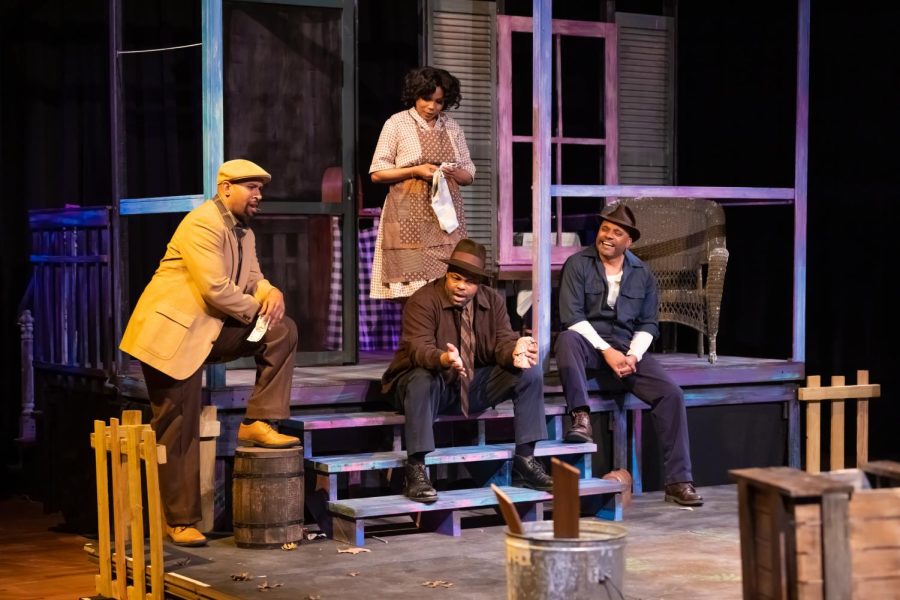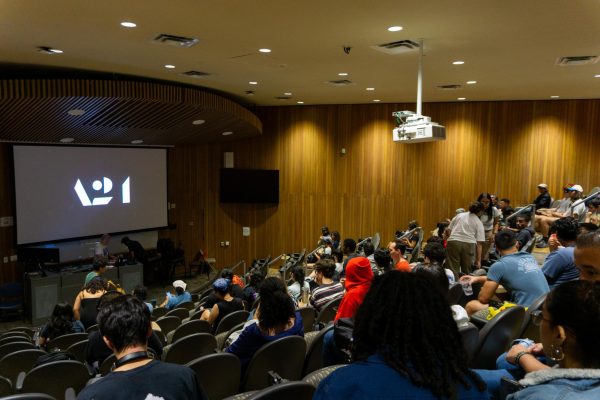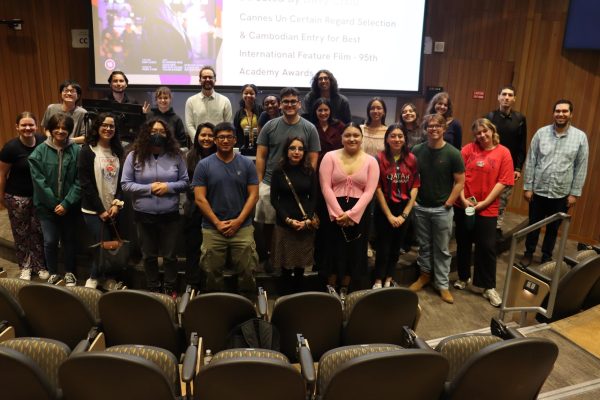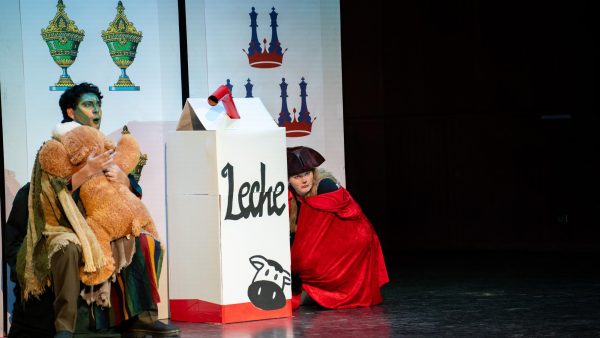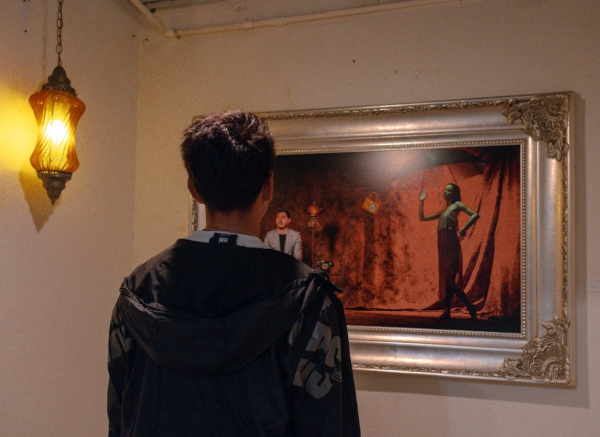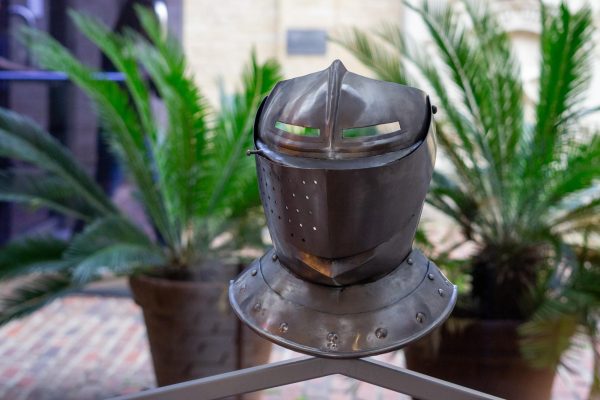‘Fences’ hits Classic Theatre in time for BHM
A conversation with Actress Nerryl Williams, Actor Tony Campbell, and The Classic Theatre’s Producing Artistic Director Jimmy Moore
February 14, 2023
This past week, The Classic Theatre of San Antonio debuted “Fences” by August Wilson at the Little Carver Civic Center.
Set in 1950s Pittsburg, the play tells the story of Troy Maxon, a Black man who used to be a star in the Negro Baseball League after learning how to play during his time spent in prison. Because of the color of his skin, Troy never made it to the Major Leagues for baseball back in his prime. He now works as a garbage man to support his wife, Rose, and his son, Cory.
Early on in the play, Cory gets attention from a college football recruiter; however, Troy does not want his son to pursue a path as an athlete because he believes professional sports is not something a Black man can have a successful career in. Having been denied a baseball career, Troy turns down the football recruiter to keep his son from the same fate, much to Cory and Rose’s disappointment. In addition to this conflict for the Maxon family, Troy’s best friend, Bono, reminds Troy that he has been making some poor choices recently. Troy denies this, but ultimately the truth comes out when he is forced to tell Rose about what has been happening. At this point, Troy’s relationship with his wife and son has completely deteriorated, and only more issues arise as time passes at the Maxon house.
The play’s main themes are racism, family relationships, manhood and the strength of women. Because of how Troy’s actions affect Rose time after time, Nerryl Williams, who plays Rose Maxon in the production, had to dig deep to portray raw emotions like grief, betrayal and rage on the stage.
“Playing this role, you can’t just memorize lines and come out and say them. You really have to come from a place inside yourself and become vulnerable in areas that you really kind of want to keep pressed down and covered up and hidden,” Williams said.
Many scenes that end with lines delivered by Williams are met with gasps from the audience, followed by a round of applause. Her performance enlists such a reaction because of the intense conflicts Rose is dealing with and the emotions felt as a result. Scenes like this often resonate with the audience, thus allowing them to take something from the play home with them. In William’s case, she wants women to see the power that they have not from other people, but from just within themselves. Williams herself has even been impacted by her character and the experience of playing Rose.
“It teaches you a lot about the things you go through as a woman,” Williams said. “Things maybe you didn’t go through, but you saw your mother go through it, or your auntie, or your grandmother.”
As mentioned, one theme from the play is race and how Troy’s experience of being a Black man affects the choices he makes regarding his son’s future. That struggle is one of many situations Tony Campbell, who plays Troy’s best friend Bono for the second time, believes the audience can relate to.
“Whether that’s in sports or in their career and just how sometimes you get knocked down from those dreams or somebody tells you can’t do something because of the system that you operate in,” Campbell said.
Like Rose, scenes with Bono elicit strong reactions from the audience, but they’re mostly laughs and smiles rather than jaw drops and gasps. Campbell’s character often has energetic and charming banter with Troy on stage, saying most of it is real emotion, and they’re truly having fun with each other. However, as time passes in the play, Campbell ultimately displays deep emotions, like pain and concern, when Troy’s situation worsens.
“Especially from my character as his friend watching him make those choices, even though we’ve warned him,” Campbell said. “This play takes a lot out of us emotionally.”
Campbell also shared his views on how the audience can relate to the themes expressed in plays. Specifically for “Fences,” he describes how people watching can find a situation on the stage that they recognize from their own lives, and what that means in terms of our society.
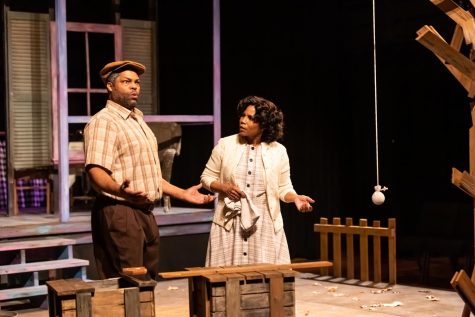
“I think it’s important to tell these stories,” Campbell said. “I think it’s going to help the audience to see that if you are Black, you’re going to recognize these stories when you see them, and if you aren’t Black, you’re going to recognize these stories when you see them, right, because they’re universal and it just shows our shared humanity which is so important right now.”
Jimmy Moore has been the artistic director for the Classic Theatre of San Antonio for a little over a year and aims for diversity and representation when it comes to the shows being produced.
“When I selected my first season, I knew The Classic had never produced a show by a Black playwright, and I knew that was absolutely something that needed to change immediately,” Moore said.
“It was important to me that this year we provided plays that were authentic to the cultures that were in San Antonio while also doing plays from the traditional White canon, that could be cast in a multicultural way. I think it’s about both of them. I think it’s about offering stories that are authentic to various cultures and giving people from all cultures the opportunity to do shows like Shakespeare, to do shows like Peter and the Starcatcher,” he added.
After playing a role in the production of “Fences,” Moore has been inspired by watching the rehearsals and design process by the team at The Classic.
“It’s one thing to read it on the page; it’s another thing to see the characters inhabited by performers who really understand them and by a director that really is passionate about the project,” Moore said.
The artistic director wants people to see “Fences” and go home with a new interpretation of classic theater and a reminder of the unique experience live performances provide. Although the representation of cultures that can define San Antonio is something Moore cares about in the productions at The Classic Theatre of San Antonio, in general, he sees theater as something anyone in the world can relate to.
“Classic theater is a feeling,” Moore said “It’s a feeling of universality; it’s a feeling of watching a piece and realizing that no matter what your background is, you can understand the emotions and the situations that these characters are dealing with.”
The Classic Theatre of San Antonio will be showing “Fences” until February 26 at the Little Carver Civic Center, and tickets can be purchased at www.classictheatre.org. Look out for “Measure for Measure” coming in May to the Classic, and “Peter and the Starcatcher” coming in July.

